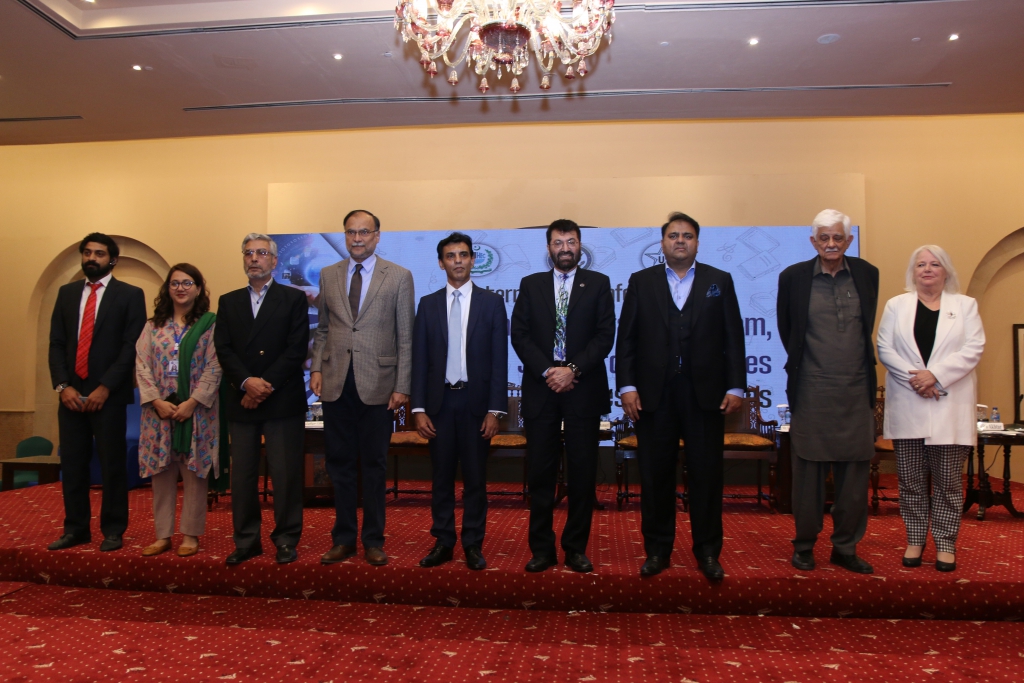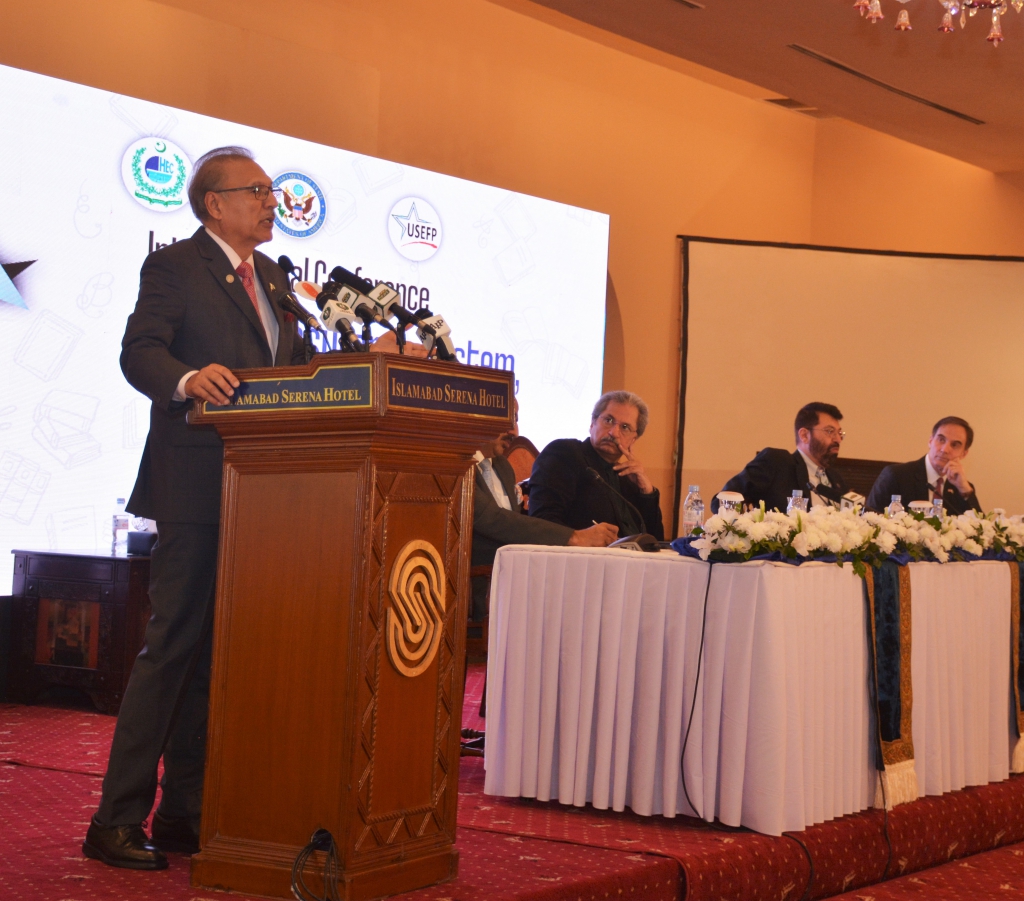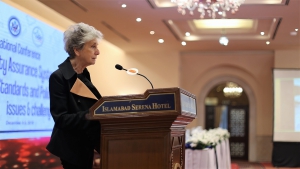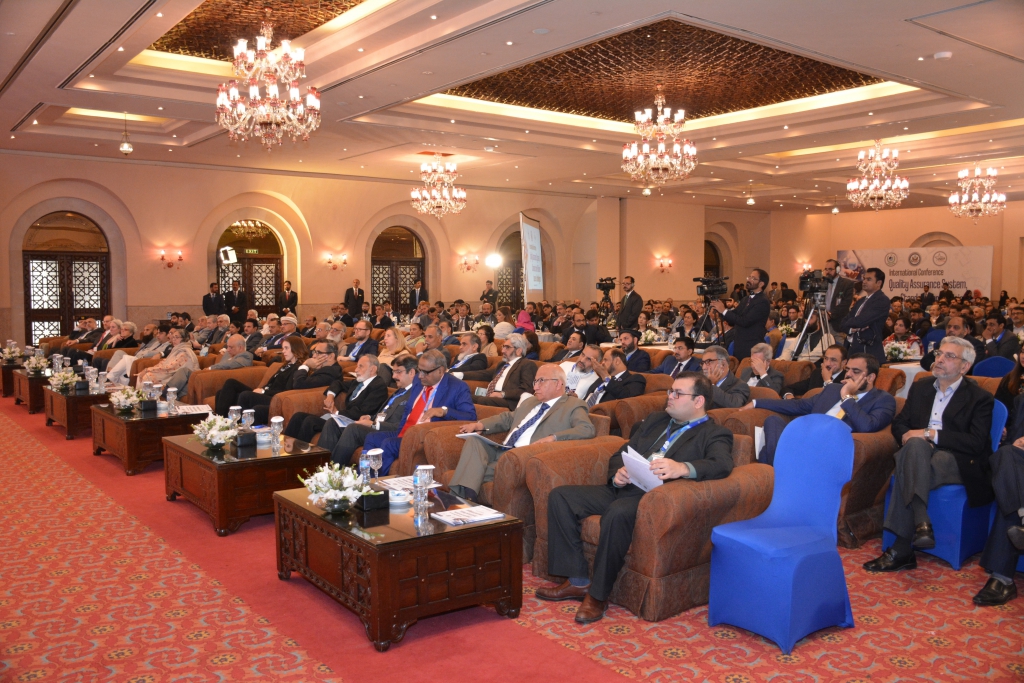In December 2019, more than 250 Pakistani higher education officials gathered in Islamabad to attend the first-ever international conference on higher education quality assurance. The conference, titled “Quality Assurance System, Standards and Policies: Issues and Challenges,” was aimed at mainstreaming quality in higher education, focusing on quality assurance systems, research excellence frameworks, teaching excellence frameworks, the role of training and capacity building, and the role of accreditation systems. Conference participants shared best practices, heard from industry experts, and discussed mutual challenges in improving quality in higher education sectors worldwide.
The two-day conference was jointly organized by United States Educational Foundation in Pakistan (USEFP) and the Higher Education Commission Pakistan (HEC), along with the Council for Higher Education and Accreditation (CHEA) U.S. International participants from over six countries, namely Afghanistan, India, Italy, Sri Lanka, UK, US, and Spain, also attended the conference. By bringing together this diverse group of international leaders, the conference sought to improve the quality of higher education and advance mutual understanding of international quality assurance standards.
The conference was attended by Guest of Honor, President of Pakistan, Dr. Arif Alvi, Council of Higher Education Accreditation (CHEA) President, Judith Eaton, Minister of Federal Education and Professional Training Mr. Shafqat Mahmood, and HEC Chairperson Dr. Tariq Banuri.
The President of Pakistan, Dr. Arif Alvi, inaugurated the International Conference of Quality Assurance System saying that “In Pakistan, we need to focus on improving existing education infrastructure before establishing new institutions.” Dr. Alvi said that access to quality education was the most important goal for Pakistan to produce a useful workforce compatible with the demands of the market and society. He emphasized that education should be focused on developing human intellect, however the whole effort should be relevant to needs of the society. “Education must be a pleasure, which should not keep students under a stress of achievement”. He stressed upon the significance of quality syllabus and trained teachers for raising students who better meet the requirements of the contemporary world and increase their scope for employment.
In the opening ceremony, U.S. Ambassador Paul Jones, Chargé d’Affaires a.i., congratulated the Pakistani government, Vice Chancellors, and other senior officials in attendance for their commitment to improving the quality of higher education across the country. “As Pakistan looks to address challenges and issues in assessing its higher education sector, and looks to build a future that is both more inclusive and more prosperous for its people, Pakistan’s youth must be prepared to lead the way, and that process can start now with the leaders in this room,” said Ambassador Paul Jones.
United States Council for Higher Education Accreditation President, Dr. Judith Eaton, observed that all partner countries may have different obstacles in terms of quality assurance, hence such conferences provide a platform to share experiences mutually. Minister Mahmood cited the long history of U.S. – Pakistan education collaboration, including his own Humphrey scholarship to study in the United States. He spoke about how Pakistani students benefit from the Fulbright Program, which not only strengthens international cooperation but also builds Pakistan’s sustainable development. While addressing the participants, HEC chairperson appreciated the generous support from USEFP and Council for Higher Education Accreditation (CHEA) for the conference.
USEFP Executive Director, Rita Akhtar, termed the conference an opportunity to engage with quality assurance experts and renew the commitment to quality in the higher education sector. “The conference helped us come up with ideas for building our future together and responding to challenges,” she said, hoping that multilateral cooperation and conversation on quality of education will continue to help increase the effectiveness of quality assurance measures.
According to the HEC, global demand for higher education enrollment is projected to increase by 200 percent by 2040 with implications for the demand for quality assurance services. These services must meet both local and international standards. The conference is an important step for Pakistan to establish a CHEA South Asia Chapter and meeting this goal.
USEFP, a bi-national commission established in 1950 by the governments of Pakistan and the United States, is one of 49 Fulbright Commissions throughout the world. For more information, please visit www.usefpakistan.org.



